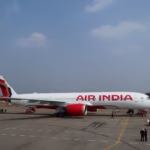
The Directorate General of Civil Aviation (DGCA) has granted Air India Limited a one-time operational exemption for select Boeing 787 flights to Europe during the ongoing winter schedule. The move comes as part of a pragmatic approach to manage operational disruptions caused by Pakistan’s continued airspace closure and changing winter wind patterns, which are expected to increase flight times on certain routes.
Under this exemption, DGCA has allowed a limited extension of up to 30 minutes in-flight time and up to one hour in Flight Duty Period (FDP) in cases where the flight duration and crew duty period extend unexpectedly after departure. However, the regulator has clarified that these exemptions are strictly for operational exigencies and cannot be used at the planning stage.
The existing regulatory limits — 10 hours of flight time and 13 hours of FDP for two-crew operations — remain unchanged. Air India must also comply with DGCA’s additional mitigation requirements, including providing one extra hour of rest for affected crew members and submitting monthly fatigue reports for these operations.
According to the official communication, this exemption covers only nine flights within the B787 European sectors. The regulator emphasized that this relaxation was accorded after “due consideration, justification, and in compliance with safety oversight requirements.”
The decision highlights DGCA’s intent to maintain a balance between operational flexibility and safety oversight. For Air India, which continues to rebuild its international network under the Tata Group’s ownership, this relief ensures continuity in long-haul connectivity without compromising crew safety standards.
Experts note that the ongoing closure of Pakistan’s airspace has forced Indian carriers to take longer alternative routes for flights to Europe, North America, and the Middle East. This adds both time and cost pressure, with some routes extending by 45–90 minutes depending on the season.
While the exemption is limited, it underscores DGCA’s adaptive approach in handling real-world operational challenges without diluting regulatory discipline. Air India, now positioning itself as a global carrier with one of Asia’s youngest widebody fleets, is expected to benefit from this flexibility through better on-time performance and reduced crew scheduling disruptions.
Overall, the development reflects India’s aviation regulator’s proactive stance in ensuring that the country’s growing international aviation sector continues to function smoothly amid complex geopolitical and climatic constraints — ensuring that passenger safety, regulatory compliance, and operational continuity go hand in hand.
